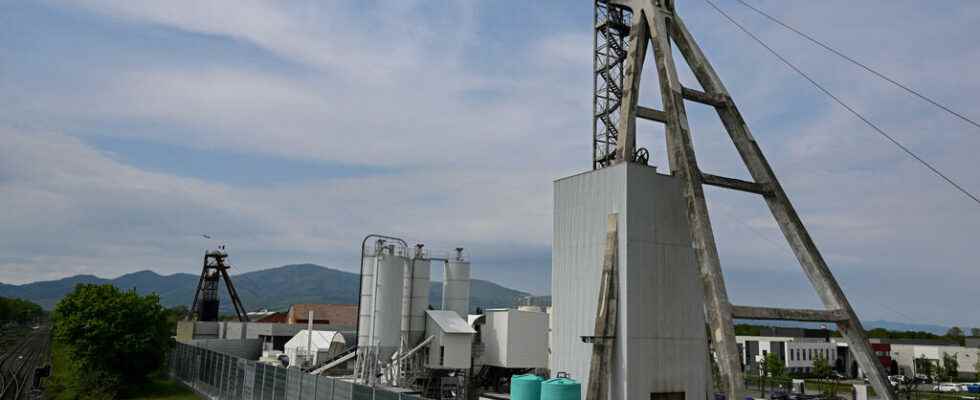The standoff continues between the Alsatians and the government around 42,000 tonnes of ultimate waste stored underground. Latest episode: the halt, on May 25, of the containment works of the Stocamine galleries in Wittelsheim, near Mulhouse, by order of the administrative court of Strasbourg. The European community of Alsace, the equivalent of the department, had filed an appeal in court to stop the concreting.
At the end of May, Extinction Rebellion, the international civil disobedience movement against ecological collapse, entered the Stocamine site in Wittelsheim for a few hours and made the headlines. Everything is broadcast live on social networks. Pousse – a pseudonym – believes that the storage of ultimate waste endangers the largest groundwater table in Europe located under the Rhine, which concerns France, Switzerland and Germany. ” What we want is destocking: taking out the waste and treating it rather than letting it rot in the water table above. It pollutes the drinking water of 7 million people. »
Stocamine is located 550 meters underground, just below the Alsace water table which runs from Basel in the south to northern Alsace. The project for an ultimate waste center – which cannot be recycled – was born when the Alsace Potash Mines closed. But everything stops in 2002 after a fire. The State then decided to reassemble the barrels of mercury and arsenic. There are still 42,000 tonnes of waste that the State and all successive Ecology Ministers want to leave in the mine. The Alsatians would like everything to be destocked.
” The mine closes, some galleries are ready to collapse. The galleries must be concreted and if there is pollution, it will be minimal, assures Céline Schumpp, director of the potash mines of Alsace. The closing mine makes the work more and more difficult. If all the precautionary measures that have been adopted do not prove effective, the maximum risk is 0.7 m3 and therefore a plume over 100 meters in the lower layer of the water table which is not used for drinking water. »
The government, the various experts selected, the various Ministers of the Environment repeat that deconfining is too expensive and too dangerous. Ecologists repeat, we cannot risk the slightest pollution of our water. Let our experts reassemble anything that can be reassembled.
Wittelsheim has 11,000 inhabitants. Located near Mulhouse, the town is often described as a trash town. The mayor, Yves Goepffert proposes a guarded storage for 70 years, a compromise solution. For him, each camp is frozen in unverified hypotheses. ” Before making hypothesis after hypothesis, it is necessary to check whether there is water. We leave pumping structures, and we pump this mine water, which is the seepage from the well. This is what is done in the coal mines. This is what our German friends are doing who have potash mines that have been closed with landfills. »
The Strasbourg administrative court will rule on the new application for containment authorization filed by the former potash mines by the end of 2022.
